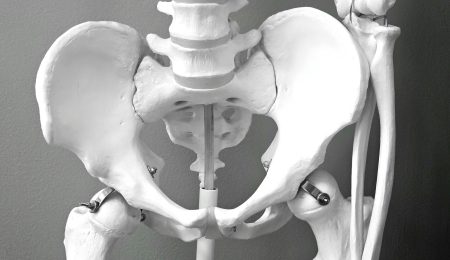Receiving a cancer diagnosis can feel like being handed a complex map without a compass. The initial shock is often followed by a whirlwind of medical terms, appointments, and decisions. It’s natural to feel overwhelmed and uncertain about the path ahead. However, it’s crucial to know that you don’t embark on this journey alone. Modern cancer care is a meticulously designed roadmap, guiding you through every phase with a dedicated team and a comprehensive suite of services.
Understanding this roadmap, from the moment of diagnosis through active treatment, recovery, and into survivorship, is key to navigating your cancer journey with clarity and confidence. It’s about empowering yourself with knowledge, ensuring you receive the holistic support needed at every turn.
The Starting Point: Diagnosis and Staging
The cancer journey officially begins with diagnosis and staging. This initial phase can be filled with anxiety, as tests are conducted to confirm the presence of cancer, identify its specific type, and determine its extent. Diagnostic procedures may include biopsies, imaging scans (like CT, MRI, PET scans), and blood tests.
Once a diagnosis is confirmed, doctors will “stage” the cancer, which describes its size, location, and whether it has spread. This staging is critical because it directly informs the most effective treatment plan. During this phase, you’ll meet with oncologists and other specialists who will explain your diagnosis in detail and begin to outline your personalized treatment options.
Active Treatment: Combatting the Disease
Once a treatment plan is established, you move into the active treatment phase, where the primary goal is to combat the cancer itself. This is often the most intensive period of the journey and may involve one or a combination of various modalities:
- Surgery: Often used to remove tumors and affected tissue. Surgeons specialize in precise removal to achieve the best outcome.
- Chemotherapy: Medications that kill cancer cells, administered orally or intravenously.
- Radiation Therapy: Uses high-energy rays to destroy cancer cells or shrink tumors, precisely targeted to minimize harm to healthy tissue.
- Targeted Therapy: Drugs that specifically target cancer cells’ unique vulnerabilities.
- Immunotherapy: Treatments that boost your body’s own immune system to fight cancer.
Throughout this phase, your oncology team will closely monitor your response to treatment and manage any side effects, adjusting your plan as needed.
Holistic Support: Nurturing Mind, Body, and Spirit
Cancer treatment impacts more than just the cancerous cells; it affects the entire person – physically, emotionally, and spiritually. Comprehensive cancer care extends beyond medical interventions to include vital supportive services designed to nurture your overall well-being.
- Nutritional Support: Registered dietitians help manage diet changes and side effects like nausea or loss of appetite, ensuring you maintain strength.
- Pain Management: Specialists work to alleviate cancer-related pain or treatment side effects, improving comfort and quality of life.
- Psychological Counseling: Therapists and counselors provide emotional support, helping you cope with anxiety, depression, fear, and stress.
- Physical and Occupational Therapy: Therapists assist with managing fatigue, regaining strength, and improving mobility or daily functioning.
- Social Work Services: Social workers connect you with resources, financial aid, and support groups, easing practical burdens.
These supportive cancer care services like those offered at South Shore Health are integral to managing the side effects of treatment and enhancing your quality of life. For comprehensive and integrated support, exploring healthcare providers can be invaluable.
Recovery and Rehabilitation: Healing After Treatment
Once active treatment concludes, the journey shifts to recovery and rehabilitation. This phase focuses on healing your body from the effects of treatment and regaining strength and function. You might continue with physical therapy or occupational therapy to rebuild stamina and address any lingering physical limitations.
Managing lingering side effects, such as fatigue or neuropathy, becomes a priority. This is also a time for emotional processing, as you adjust to life after intense treatment. Regular follow-up appointments with your oncologist are crucial during this phase to monitor your recovery and address any emerging concerns.
Survivorship: Living Well Beyond Cancer
Survivorship is the long-term phase of the cancer journey, beginning from diagnosis and extending throughout the rest of your life. It’s about living well beyond cancer and thriving. This phase involves ongoing surveillance for recurrence, managing any long-term or late-onset side effects of treatment, and adopting healthy lifestyle practices to promote overall well-being.
Survivorship programs often offer resources for nutrition, exercise, emotional support, and connecting with other survivors. It’s a time to focus on reclaiming your life, setting new goals, and finding a “new normal” that is fulfilling and vibrant. The emphasis here is on holistic well-being and proactive health management.
Conclusion: Your Compassionate Guide Through Cancer
A cancer diagnosis can indeed feel like uncharted territory, but you are not alone. Your cancer journey is mapped out with a comprehensive range of cancer care services, guiding you every step of the way. From precise diagnosis and effective treatments to vital holistic support, focused rehabilitation, and empowering survivorship programs, a dedicated team is committed to your well-being.
By understanding this roadmap, you can confidently navigate your path, knowing that compassionate care and expert guidance are always on your side, helping you not just survive, but thrive.










